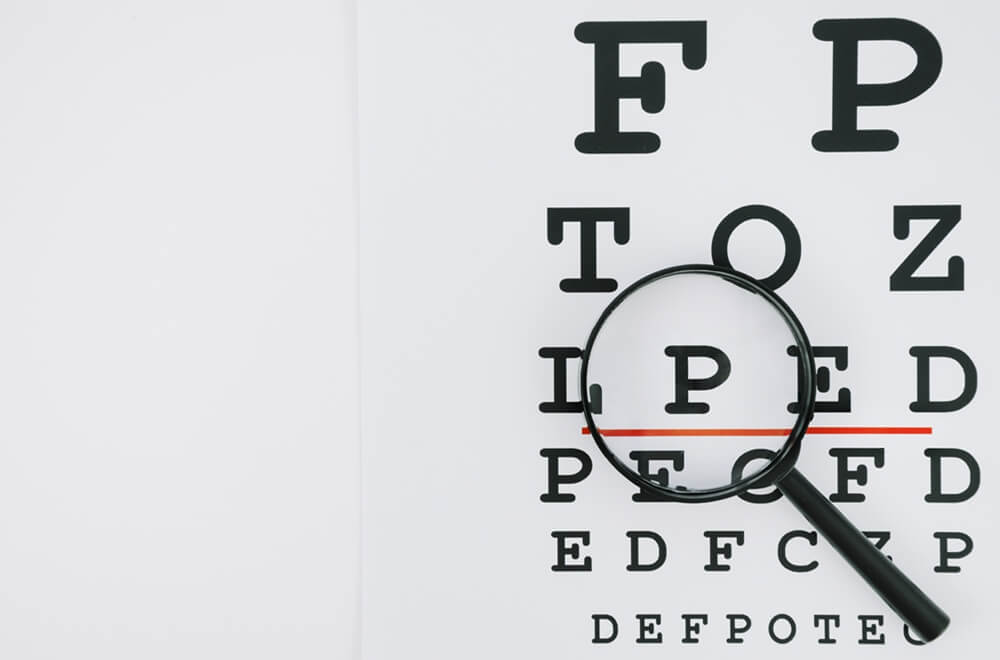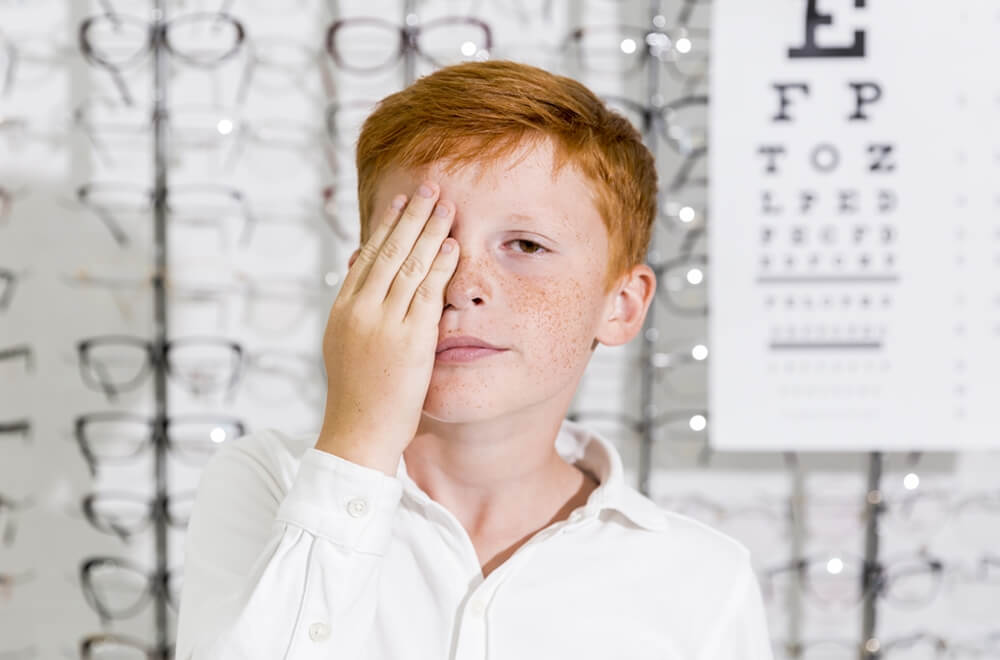Our eyes are precious windows to the world, allowing us to witness its beauty and experience life to the fullest. Yet, we often overlook the care they require for long-term health. From lifestyle habits to professional care, we'll cover everything you need to know to safeguard your eyes and promote long-term eye health.
Understanding the Importance of Long-Term Eye Health
Proper eye care is not only about achieving clear vision; it is a fundamental aspect of your overall well-being. Your eyes serve as the windows to the world, allowing you to connect with your surroundings, enjoy the beauty of nature, and engage in the activities you love. Neglecting the long-term health of your eyes can have far-reaching consequences that extend beyond mere vision impairment.
By prioritizing eye care and adopting healthy habits, you can actively protect your vision and prevent future complications. One of the primary risks of neglecting long-term eye health is vision deterioration. Over time, unaddressed eye issues can lead to blurry vision, difficulty focusing, and an overall decline in visual acuity. This can significantly impact your quality of life, making everyday tasks more challenging and diminishing your ability to appreciate the world around you.
Furthermore, neglecting proper eye care can result in persistent eye strain, which can cause discomfort, headaches, and fatigue. With the increasing prevalence of digital devices in our lives, extended periods of screen time have become the norm. Continuous exposure to digital screens, coupled with poor viewing habits, can put a tremendous strain on our eyes. By incorporating eye-friendly practices and making conscious efforts to reduce digital eye strain, you can alleviate discomfort and maintain optimal eye health in the long run.
Another critical aspect of long-term eye health is the prevention of potential eye diseases. Many eye conditions, such as glaucoma, cataracts, and macular degeneration, can develop gradually over time without exhibiting noticeable symptoms in the early stages. Regular eye examinations play a vital role in detecting these conditions early on when treatment options are more effective.
Proactively monitoring the health of your eyes and seeking professional care when needed significantly reduces the risk of developing serious eye diseases and helps preserve your vision for years to come.
In addition to the physical implications, caring for your eyes has a profound impact on your overall well-being. Good vision enables you to fully enjoy the world, appreciate the beauty of nature, and engage in activities that bring you joy and fulfillment. By investing in long-term eye health, you are investing in a higher quality of life, improved mental well-being, and the ability to maintain your independence as you age.
Maintaining a Healthy Lifestyle for Long-Term Eye Health
1. Proper Nutrition for Eye Health:
Ensuring a nutrient-rich diet is vital for supporting long-term eye health. Certain vitamins and nutrients are particularly beneficial for maintaining optimal vision.
Vitamins A, C, and E, along with omega-3 fatty acids, play key roles in promoting eye health. Vitamin A helps protect the surface of the eye and is essential for good night vision. Citrus fruits, carrots, sweet potatoes, and leafy greens like spinach and kale are excellent sources of vitamin A. Incorporating these foods into your meals not only enhances the flavors but also provides your eyes with the necessary nutrients for long-term health.
Vitamin C acts as an antioxidant, shielding your eyes from harmful free radicals and reducing the risk of age-related macular degeneration and cataracts. Citrus fruits such as oranges, lemons, and grapefruits are rich in vitamin C, as are strawberries and bell peppers. By including these vibrant and refreshing options in your diet, you nourish your eyes and support their resilience against potential eye diseases.
Vitamin E complements the benefits of vitamins A and C by protecting your eyes from oxidative stress and promoting healthy cell function. Almonds, sunflower seeds, and spinach are excellent sources of vitamin E. Snacking on a handful of almonds or incorporating sunflower seeds into your salads and stir-fries can boost your vitamin E intake and contribute to your long-term eye health.
Omega-3 fatty acids are essential fats that provide numerous benefits for your eyes. These healthy fats help maintain the structural integrity of the cell membranes in your eyes and support proper tear production. Cold-water fish like salmon, trout, and sardines are rich in omega-3 fatty acids.
In addition to these specific nutrients, a balanced diet that includes a variety of fruits, vegetables, whole grains, lean proteins, and healthy fats is crucial for overall well-being and eye health in the long run.
2. Hydration and Eye Health:
Staying adequately hydrated is crucial for maintaining optimal eye health. Dehydration can have negative effects on your eyes, leading to dryness and discomfort. By making hydration a priority, you can ensure that your eyes remain lubricated and function at their best.
Water is essential for maintaining the moisture balance in your eyes. When you're dehydrated, your body prioritizes vital organs, and as a result, your eyes may not receive the hydration they need. This can result in dry eyes, a condition characterized by a lack of tear production or poor tear quality.
Dry eyes can lead to various uncomfortable symptoms such as itching, redness, a gritty sensation, and even blurred vision. These symptoms can significantly impact your daily life, making it difficult to focus and causing general discomfort.
To prevent and alleviate dry eyes, make it a habit to drink an adequate amount of water throughout the day. The exact amount of water needed varies from person to person, but a general guideline is to aim for at least eight 8-ounce glasses of water per day. However, factors such as climate, physical activity level, and overall health may require you to adjust your water intake accordingly.
Incorporating foods with high water content into your diet can also contribute to hydration and support your eye health. Foods such as cucumbers, watermelon, oranges, and grapes are not only refreshing but also provide hydration to your body, including your eyes.
3. Regular Exercise and Eye Health:
Exercise isn't just beneficial for your body; it also promotes good blood circulation, including to your eyes. Engage in activities like brisk walking, jogging, or yoga to improve blood flow and supply vital oxygen and nutrients to your eyes.
Practicing Eye-Friendly Habits in Everyday Life
1. Proper Eye Protection:
Shielding your eyes from the harmful effects of ultraviolet (UV) rays is crucial for maintaining long-term eye health. Whether you're spending time outdoors or engaging in certain activities, taking steps to protect your eyes from UV radiation is essential.
When you step outside, especially during peak sun hours, wearing sunglasses that block 100% of UVA and UVB rays is vital. Look for sunglasses with a label or sticker indicating their ability to provide complete UV protection. This ensures that your eyes are shielded from the damaging effects of UV rays, which can contribute to conditions like cataracts, macular degeneration, and even eye surface cancers.
In addition to wearing sunglasses, consider other forms of eye protection when participating in sports or activities that pose a risk of eye injury. Sports such as hockey, racquetball, and basketball, as well as activities like woodworking or using power tools, can potentially lead to eye accidents. Wearing protective eyewear specifically designed for these activities can prevent serious eye injuries, including scratches, cuts, and even blunt trauma.
Remember to prioritize eye protection for yourself and your loved ones, especially children. Their developing eyes are particularly susceptible to damage from UV radiation, so it's crucial to ensure they wear appropriate sunglasses and protective eyewear when necessary.
2. Limiting Digital Eye Strain:
In today's digital age, prolonged screen time is common. However, excessive screen use can strain your eyes and lead to discomfort. To minimize digital eye strain:
● Follow the 20-20-20 rule: Take a break every 20 minutes, and look at an object 20 feet away, for at least 20 seconds.
● Adjust your screen settings: Optimize brightness, contrast, and font size for comfortable viewing.
● Blink frequently: Remember to blink regularly to keep your eyes moist.
3. Adequate Rest and Sleep for Eye Health:
Quality sleep is essential for your eyes to repair and rejuvenate. Lack of sleep can cause dry eyes, eye fatigue, and blurred vision. Establish a consistent sleep routine, ensure your sleep environment is comfortable, and aim for 7-8 hours of uninterrupted sleep each night.
Regular Eye Examinations and Professional Care
Regular eye examinations are not only important for maintaining good eye health but also for detecting and addressing potential eye problems early on. It is recommended to visit an eye care professional at least once every two years, or as advised by your healthcare provider.
During a comprehensive eye examination, your eyes will be thoroughly evaluated, allowing the eye care professional to assess your vision and detect any abnormalities or signs of eye conditions. The examination may include various tests, such as visual acuity, refraction, eye muscle movement assessment, and examination of the internal structures of the eye.
By undergoing regular eye exams, any vision issues or underlying eye conditions can be identified promptly. Early detection is key, as it enables timely intervention and appropriate treatment, which can help prevent further deterioration and preserve your vision. Some eye conditions, such as glaucoma or diabetic retinopathy, may not exhibit noticeable symptoms in the early stages. Regular eye examinations ensure that these conditions are detected early when treatment options are most effective.
Your eye care professional can also provide personalized recommendations for maintaining and improving your eye health based on your specific needs. This may include advice on lifestyle modifications, such as proper nutrition, eye hygiene, and habits to reduce digital eye strain.
It is important to keep in mind that even if you do not currently experience any vision problems, regular eye examinations are still crucial! They serve as a proactive measure to monitor your eye health and detect any changes that may require attention.
Don't wait for symptoms to arise before scheduling an eye examination. Make it a part of your routine healthcare and enjoy the peace of mind that comes with knowing your eyes are receiving the professional care they deserve.
Tips for Eye Health at Different Life Stages
1. Eye Care for Children and Adolescents:
Children's eye health is crucial for their learning and development. To ensure optimal eye health in children and adolescents, regular eye exams are essential. These exams help detect any potential vision issues or eye conditions early on, allowing for timely intervention and preventing further complications.
Encourage healthy eye habits, such as taking breaks during screen time and wearing protective eyewear during sports or outdoor activities. Limiting screen time and promoting a balanced diet rich in eye-friendly nutrients like vitamins A, C, and E are also important.
2. Eye Care for Adults and Seniors:
As we age, the risk of age-related eye conditions, such as cataracts and macular degeneration, increases. That's why regular eye check-ups become even more vital. These check-ups help detect potential eye problems early on when treatment options are most effective. Additionally, maintaining a healthy lifestyle, including a balanced diet and regular exercise, plays a crucial role in supporting your eye health as you age.
By prioritizing regular eye check-ups and adopting healthy habits, you can take proactive steps to support your eyes and reduce the risk of age-related eye conditions.
Final Thoughts
Long-term eye health is a valuable investment that allows us to enjoy clear vision and experience life fully. Incorporating the tips mentioned in this article, such as maintaining a healthy lifestyle, practicing eye-friendly habits, and seeking regular professional care, will help you safeguard your eyes and promote long-term eye health.
Your eyes are precious, and caring for them today ensures a brighter and clearer vision for the future. Implement these strategies, prioritize your eye health, and let the beauty of the world unfold before your eyes for years to come.
Stay informed about the latest developments in eye care and receive valuable tips and insights by signing up for our newsletter. Our newsletter is packed with valuable information on maintaining healthy eyes, preventing eye problems, the best eyewear products for the world and you, and much more. Don't miss out on this opportunity to enhance your eye health journey.
Sign up for our newsletter today and embark on a journey of prioritizing and nurturing your precious eyes.













